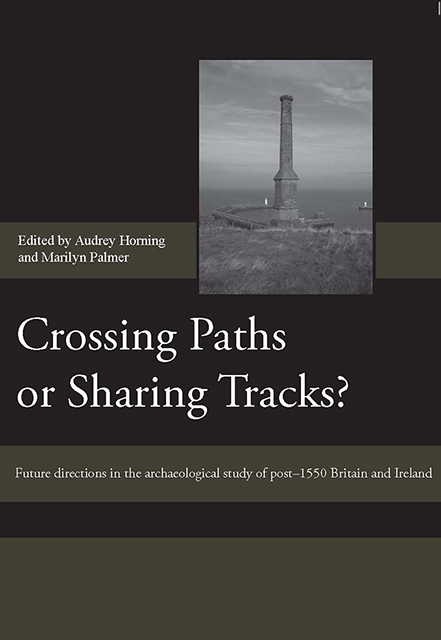 Crossing Paths or Sharing Tracks?
Crossing Paths or Sharing Tracks? The View From Afar: International Perspectives on the Analysis of post-1750 Ceramics in Britain and Ireland
Published online by Cambridge University Press: 07 March 2023
Summary
The concept of a globally aware historical archaeology is not itself new, but the implications of such a perspective on the historical archaeology of Britain and Ireland have yet to be fully explored. Later post-medieval ceramics, specifically those dating after the advent of industrial mass production in the mid-18th century, off er one means of exploring these implications through material culture analysis. Global conflicts, such as the Napoleonic Wars and the American Civil War, are also shown to have relevance to internationally aware interpretations of domestic ceramic distributions in Britain and Ireland.
INTRODUCTION
The implications of a globally aware international perspective on the analysis of post- 1750 British material culture, particularly ceramics, are still imperfectly understood. In this chapter, a ‘globally aware perspective’ does not mean a discussion of whether North American and Australian historical archaeology analytical techniques are applicable outside their home regions, but rather how an awareness of international events and the increasing globalisation of trade might impact our interpretations of domestic material culture assemblages within Great Britain and Ireland.
The observation that historical archaeology deals with an increasingly globalised world, and that a by-product of this phenomenon is an increasingly globalised international trade market, has become a major point of discussion in the discipline, whether through general theoretical overviews of the topic or more focused studies of maritime trade or even more specific studies of individual material culture types, such as ceramics. British ceramics of the industrial era have been recovered from archaeological sites in Iceland, the Mediterranean, the Falkland Islands, Australia, South American nations, various regions of Africa, and many other countries and regions.
Despite an increasingly broad literature on the analysis of domestic, rather than industrial, post-1750 ceramics assemblages in Britain and Ireland, including south-west Wales, London, St Kilda and Cheshire, our understanding of the impact of the globalmarket and global events on domestic assemblages within Britain remains incomplete. This in turn has implications for our ability to examine a range of interpretive issues relevant to our developing understanding of the archaeological record of the more recent British past, particularly as regards socioeconomic and geographical variation.
- Type
- Chapter
- Information
- Crossing Paths or Sharing Tracks?Future directions in the Archaeological Study of Post-1550 Britain and Ireland, pp. 287 - 300Publisher: Boydell & BrewerPrint publication year: 2009
- 5
- Cited by


